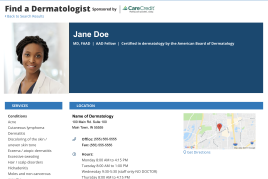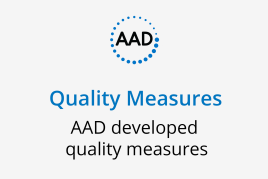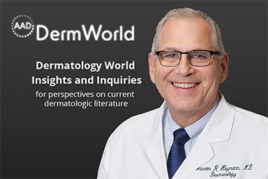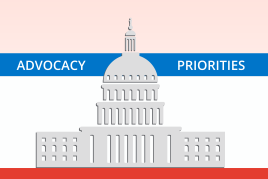Dermatology Match Day: The ecstasy and the agony

By Warren R. Heymann, MD
March 15, 2018
In February, 1979, one month prior to matching in internal medicine at NYU/Bellevue Hospital, I took a dermatology elective under the tutelage of Dr. Michael Fisher at the Albert Einstein College of Medicine. What an epiphany — a fascinating discipline that matched my skill set! In March, I applied to three New York programs, and was accepted to Einstein a few weeks later.
That would never happen today (aside from the fact that there was no dermatology match).
The hyper-competitive world of securing a dermatology residency gets more intense every year.
Today we will learn who matched in our program at Cooper Medical School of Rowan University. Our residency is a small, intimate affair — who joins us really matters, as that person will be an integral part of our team. Our program director, Analisa Halpern, has been choosing superstars (academically and socially) for years. From the interviews this year, I know the trend will continue.
The Ecstasy:
Any successful dermatology resident has endured strenuous academic rigors to have gotten this far. They are at the top of their class, performed the requisite research, and participated in altruistic extracurricular activities. When they open the envelope tomorrow, they may not have gotten their top choice, but will take solace in being among the elite. Congratulations to those who matched!
The Agony:
Earlier this week, many truly deserving, outstanding applicants learned that they have not matched, and they are devastated. How could this have happened, knowing that they have done everything as perfectly as the other candidates? The answer is the same as to why 5 quarts of milk do not fit into a gallon container. The milk is fine — there is just not enough room.
I will be blunt — the application process for dermatology has become absurd.
Because of its ultra-competitiveness, the process begins far too early. I have had high school students (usually children of physicians) shadow me, admitting that they can then document that their interest in dermatology is life-long. I routinely get calls from students, once they are accepted to medical school, ask if they can start on any research projects, prior to their first basic science lecture.
Dermatology is an incredibly enticing discipline, but I don’t believe I’m being cynical thinking that many people are interested because of one (or a combination) of the following: a perceived “lifestyle” and a higher income. I performed an experiment at our school’s dermatology interest group meeting last year. About 20 students (from all years) came — I asked how many are intrigued by dermatology because of lifestyle concerns versus a genuine interest in the field. (I turned my back so I could not see who raised their hands). Half admitted to coming because of presumed benefits. I give those students credit for admitting it (meaning the real number is probably higher). My advice to any student expressing an interest in dermatology is to choose the field because they enjoy the work, not for the accoutrements.
Applicants opt to take several dermatology electives and, increasingly, many choose a “gap year” to bolster their credentials. Perhaps I’m in the minority, but I prefer having residents learn dermatology during their residency; there is no reason for a first-year resident to recite every type of porokeratosis on day one (but is unable hear a bruit or properly palpate an abdomen for organomegaly). I maintain an old-fashioned notion that students should learn how to be physicians prior to becoming specialists.
Devoting a year to research is marvelous, if taken out of genuine interest, not because it is viewed as mandatory to match. If that becomes the norm, then the odds of securing a residency will be no better than they are now. In this age of substantial student debt, an extra year(s) is significant.
One of the joys of my career has been mentoring students. Nothing has been more professionally gratifying than having watched many mature from student, to resident, to colleague.
For the unsuccessful dermatology applicant who has done everything possible, there is little comfort in knowing they are not alone. A major problem is that they are convinced that dermatology is the one and only path to happiness in medicine.
Until there are more residency positions available, and other disciplines have comparable remuneration (neither of which is likely to happen soon), it is incumbent on faculty to give proper advice to those medical students who are considering a career in dermatology. We must be honest with students who are likely not to make the grade. More importantly, for those who show potential, they should approach the process with their eyes wide open, and consider a “Plan B”. How many personal statements have you read that tout the appeals of dermatology? Not every aspect of the discipline is equally compelling – for those who are attracted to Mohs surgery, perhaps other surgical disciplines like otolaryngology or urology might be reasonable; for those excited by connective tissue diseases, rheumatology is a natural choice; students allured by perceptions of parasitosis may be wonderful psychiatrists; those enamored by dermatopathology could specialize in soft tissue tumors as a pathologist, et cetera.
My heart goes out to every worthy candidate whose career choice has been dashed. Some will keep trying, and a few will be successful in their pursuits. It is analogous to an actor dreaming of Broadway stardom – on how many tables do you wait, while going from audition to audition, before deciding on a new career? I appreciate my good fortune in becoming a dermatologist. I also believe that I could have become a reasonably good internist, with a satisfying career in a subspecialty such as gastroenterology or endocrinology. Such is life – choices, circumstances, and fate. We must advise our students with care, cautious optimism, practicality, and perspective.
All content found on Dermatology World Insights and Inquiries, including: text, images, video, audio, or other formats, were created for informational purposes only. The content represents the opinions of the authors and should not be interpreted as the official AAD position on any topic addressed. It is not intended to be a substitute for professional medical advice, diagnosis, or treatment.
DW Insights and Inquiries archive
Explore hundreds of Dermatology World Insights and Inquiries articles by clinical area, specific condition, or medical journal source.
All content solely developed by the American Academy of Dermatology
The American Academy of Dermatology gratefully acknowledges the support from Incyte Dermatology.
 Make it easy for patients to find you.
Make it easy for patients to find you.
 Meet the new AAD
Meet the new AAD
 2022 AAD VMX
2022 AAD VMX
 AAD Learning Center
AAD Learning Center
 Need coding help?
Need coding help?
 Reduce burdens
Reduce burdens
 Clinical guidelines
Clinical guidelines
 Why use AAD measures?
Why use AAD measures?
 Latest news
Latest news
 New insights
New insights
 Combat burnout
Combat burnout
 Joining or selling a practice?
Joining or selling a practice?
 Advocacy priorities
Advocacy priorities
 Promote the specialty
Promote the specialty

